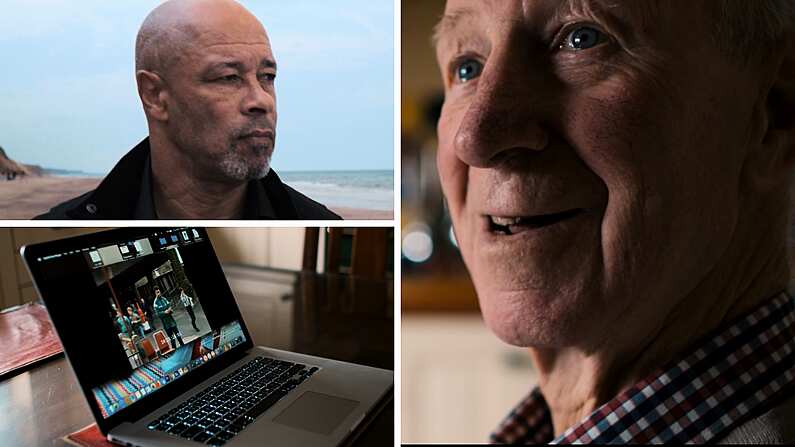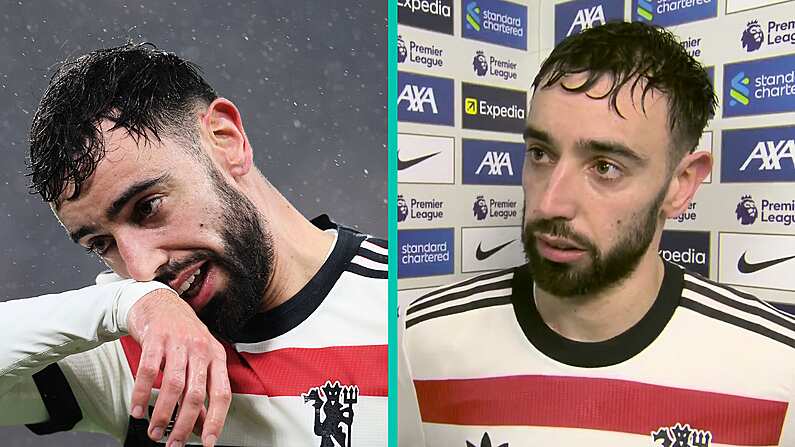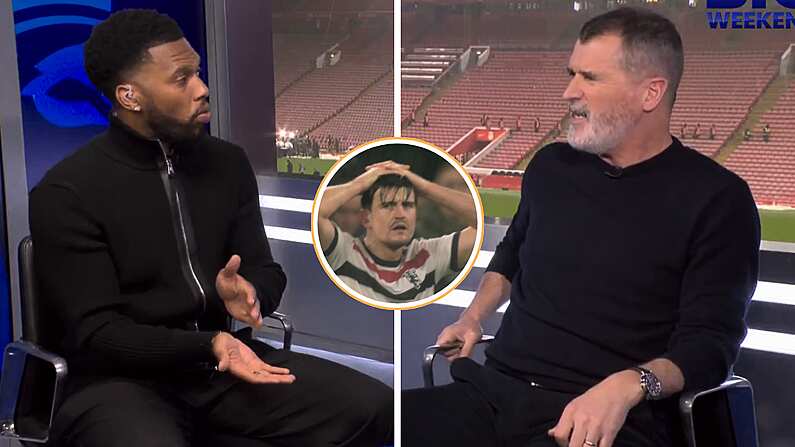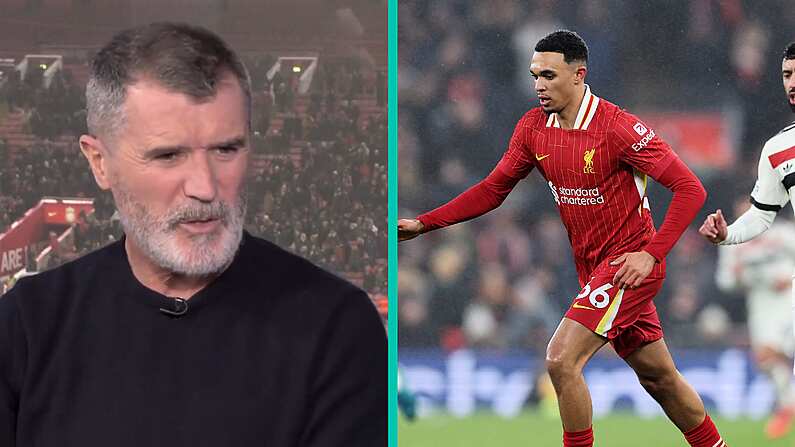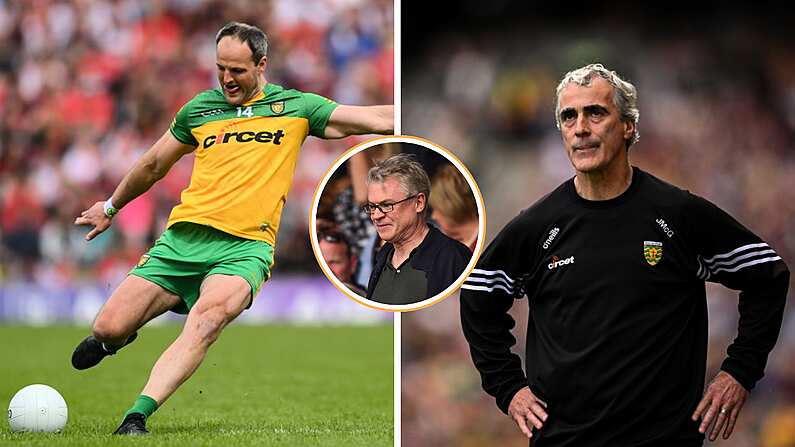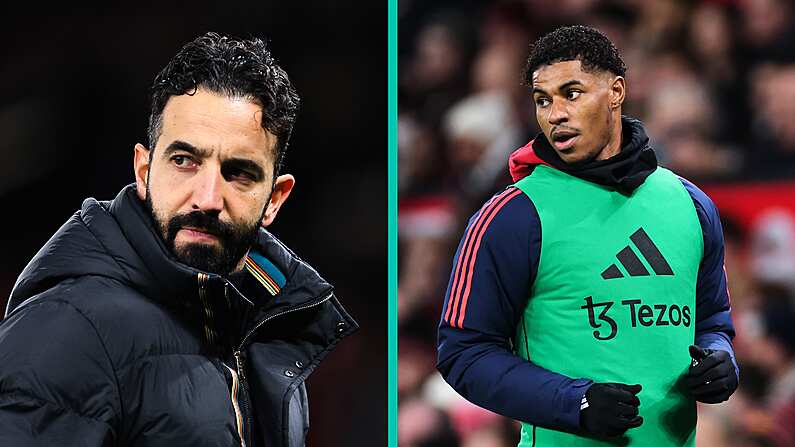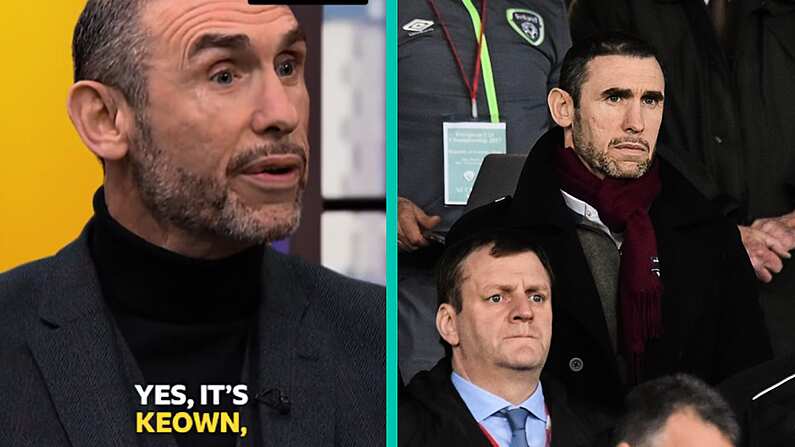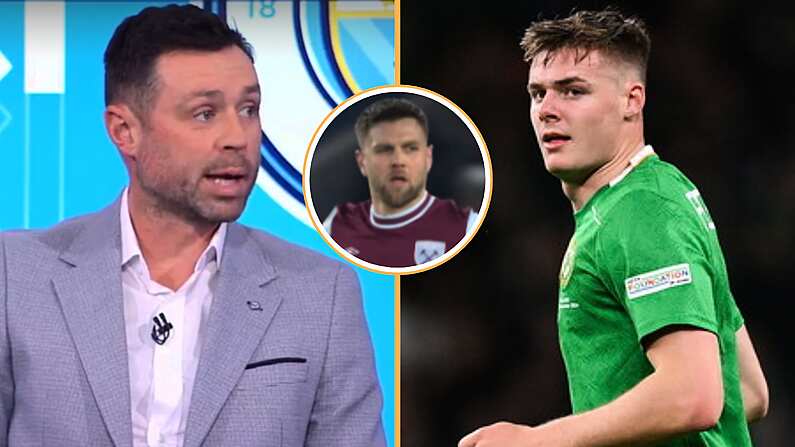Early in the 2021 documentary Finding Jack Charlton, the writer Declan Lynch delivers this verdict on the country that Charlton arrived in 1985, the first Englishman to manage Ireland.
In the middle of the 80s, if Ireland were a person, it would be a deeply dysfunctional, tormented individual.
He could have easily been describing Paul McGrath. Lynch would say as much later in the film:
[McGrath] embodied the dysfunctional history of Ireland. There were so few people in Ireland who were black. It was a very draconian country and a very cruel country in a lot of ways. And Paul suffered a lot from that.
Across his 11 years managing Ireland, Charlton would have a transformative effect on Paul McGrath's life. Charlton and his football team would transform all of our lives too along the way.
Few men could have done it.
Finding Paul McGrath
The story of Jack Charlton's heroics managing Ireland has been told countless times. It forms the foundation myth of modern Ireland. And for all the familiarity we have with that story, Finding Jack Charlton provided a heartbreaking postscript, and a new way of understanding the story's charismatic protagonist.
Jack Charlton's incredible life story is told against the backdrop of his battle with dementia.
Jack's wife Pat opened the doors of the family home to the filmmakers. What they captured was devastating.
Jack Charlton the man was there on camera, but Jack the rogue, the lad, the beloved hero of Ireland was not.
The film makes for such a jarring contrast: the memory-maker seemingly denied access to such a rich firmament of memory: from Wembley in '66 to Genoa in '90 and so much before and after.
And yet, in one unforgettable scene, it becomes clear those memories have not been banished entirely.
Jack is sitting in his kitchen, watching old Ireland footage on a laptop.
When Big Jack recognised Paul Mc Grath 😭😭😭 #FindingJackCharlton #DonateForDementia pic.twitter.com/kA7MI88Q2c
— Mary (@Mc1988) March 28, 2021
He sees Paul McGrath on the screen. Charlton says his name, before flashing his trademark smile to the camera.
The scene lasts no more than 10 seconds but it contains a miraculous multitude of emotions.
Gabriel Clarke was one of the co-directors of the film and spoke to us recently about Jack Charlton, Paul McGrath and the film he helped make about them.
Charlton's relationship with McGrath is one of the central themes of the film. McGrath was hugely generous in his contribution in the documentary, speaking candidly about his troubles and the profound impact that Jack had on his life.
"I don't really value myself in the way others would seem to," McGrath says as the film focuses on his heroics in Giants Stadium in 1994. "But that time with Jack Charlton defined my life, simply because it needed defining,"
"I don't really value myself in the way others would seem to. But that time with Jack Charlton defined my life, simply because it needed defining"
On Paul McGrath's 65th birthday, we thought it was worth watching back this extraordinary sequence from the Finding Jack Charlton… pic.twitter.com/YcmTNvmmKs— Balls.ie (@ballsdotie) December 4, 2024
"It was never going to be a Paul McGrath documentary but we were able to touch on things through Paul that said a lot about Ireland," Clarke says.
Paul was always going to be an important interview for us. I know he doesn’t speak so much, but we’re very grateful for the interview he did.
The film sets out to counter some of the misperceptions about Charlton. In footballing terms, we see how Charlton was a tactical innovator.
"I don’t think his football intellect had been fully appreciated," Clarke says. "It had been dumbed down a bit."
In human terms, Finding Jack Charlton also shows Charlton was far more than the caricature of the gruff Geordie that formed around him after 1966.
It's his relationship with McGrath that captures this best. When McGrath was at his lowest, specifically in the aftermath of the Euro 92 qualifier against Turkey, where he couldn't get off the team bus at Lansdowne Road, Charlton provided empathy and support.
McGrath recounts a conversation in his hotel room after Ireland's victory that day.
"Sorry, son, I didn't realise how bad you had it," Charlton told McGrath. It was clear McGrath had not lost his manager's support.
"There were other managers who didn’t have the patience, or didn’t need to have the patience," Clarke says.
At that moment, it could have been it, that’s it, you’re done. But that humanity is fundamental to Paul, and then what Paul was able to do in ‘94.
Obviously now we are more aware of those issues but you wouldn’t have naturally associated that with the stereotype of Jack.
It was great to be able to change that [perception] in the film. There was definitely that ability as a man to connect with someone who is vulnerable.
And Paul was almost teaching Jack through that experience. Jack was having to learn something.
Clarke says it was after speaking with Paul that they captured the moment that crystallised how much Paul meant to Jack.
When Big Jack recognised Paul Mc Grath 😭😭😭 #FindingJackCharlton #DonateForDementia pic.twitter.com/kA7MI88Q2c
— Mary (@Mc1988) March 28, 2021
Pete Thomas (the co-director) and Andy White (the cinematographer) were there (when it was filmed) It’s just something that naturally happened.
Clarke has developed an insight into how dementia works having made the film about Jack Charlton, and having done a recent interview with Dave Watson - another England great who is living with dementia - and his wife Penny. Music and images have a way of rekindling memories that seem lost.
The way that Jack responds to the Blaydon Races as well (in the film), when that was played. I think that showing footage, listening to music, is something that you do. And I’m not an expert in the condition, but I learned about it. That whole idea of looking at things; the long-term memory is there, in a lot of cases. It needs a little jog, a little push, but it’s there. But the tragedy of the situation is that the short term memory isn’t, and therefore the recognition isn’t. So you have those moments of recognition often triggered by images that your mind is still able to relate to.
It’s something that’s quite common, I think. But obviously the way that Jack reacted was special. One shouldn’t maybe read too much into it because you don’t know what’s happening with the brain, and how it works.
Any time you see someone smile like that is special, and that’s something that you do lose, the person living with dementia loses that. They lose that side of their character, and that’s some of the hardest things for the people around them.
When they say ‘he’s not the same Jack’, they mean because you aren’t getting those types of variety in the humour and emotion. That’s one of the horrible things about the condition.
But it can be restored in moments like that.
For those of us fortunate to experience the joy forged by Charlton, McGrath and the rest of that Ireland team, Finding Jack Charlton manages to restore the big emotions of a truly unbelievable time.
Finding Jack Charlton from the Noah Media Group is available to watch on Virgin Media Television (Ireland), Sky Italia (Italy), and STAN (Australia)

